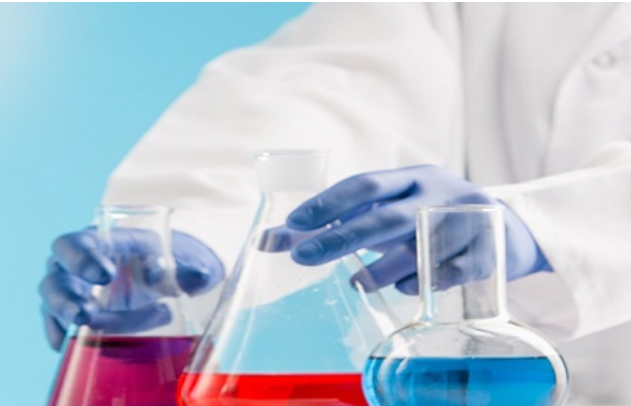Overview
The Shree Mahaganpati Hospital has, under one roof, various Radiology and other Diagnostic services, both preliminary and advanced, which are necessary to rule out diseases as well as for accurate treatment.
These facilities are:
X-Rays is important in detecting Fractures, Tears or hairline cracks. They play a role in the Orthopaedic (Bone and Muscle) Department. X-Rays also help to detect or rule out abnormalities in the respiratory system. The x-ray unit has a digital facility and is spacious.
Sonography or Ultrasound Scanning helps to diagnose a wide variety of conditions in men, ranging from heart disease to abnormalities in the prostate gland or testicles. In children, physicians commonly use Ultrasound to virtually examine a child's Gastrointestinal tract for signs of Appendicitis, Liver disorders, Intestinal Anomalies, etc. Ultrasound helps detect heart Disease, Stroke, abnormalities in the abdomen or reproductive systems, Gallstones, Liver damage, and Kidney Dysfunction. The SMGH has advanced ultrasound machines to give accurate reports.
Stress Test is also called the Treadmill Test. It shows whether the blood supply is reduced in the arteries that supply the heart. It also helps doctors know the type and level of exercise appropriate for a patient. Our Cardiologist is experienced and uses this test to rule out Cardiac problems, Coronary Artery Diseases and related causes of Chest Pain, shortness of breath or light-headedness. It also helps to determine safe levels of exercise, check the effectiveness of procedures done to improve circulation in patients with coronary artery disease and predict the risk of heart attack.
2D-Echo is Echocardiography that takes live images of the heart to check its functioning.
It helps to detect:
- Blood clots in the heart chambers
- Fluid in the sac around the heart
- Problems with the aorta, which is the main artery connected to the heart
- Problems with the pumping or relaxing functions of the heart
- Problems with the functioning of the heart valves
- Abnormal pressures in the heart
The Shree Mahaganpati Hospital has advanced machines for stress- and 2-D Echocardiography tests.
PFT or the Pulmonary function test looks for abnormalities in the lungs through spirometry. The spirometer records the amount and the rate of air that is breathed in and out over a period of time. Other tests require forced deep inhalation or exhalation.
Physicians recommend these tests to provide appropriate and timely treatment in the following conditions:
- Asthma
- Allergies
- Chronic Bronchitis
- COPD (Chronic Obstructive Pulmonary Disease)
- Damaged or scarred lung tissue
- Disease caused by breathing in asbestos fibres
- Sarcoidosis –a collection of inflammatory cells around organs
- Lung Cancer
- Infections
- Thickened, stretched or enlarge airways
- Thickening or hardening of connective tissues (Scleroderma)
- Weakness of muscles of chest
ECG or Electrocardiogram is a quick, safe, and painless procedure that detects cardiac (heart) abnormalities by measuring the electrical activity generated by the heart as it contracts. Doctors understand ECG codes and changes to detect or rule out signs of heart diseases.
An ECG helps to detect:
- Irregularities in a heart’s rhythm
- Poor blood flow to heart muscle (Ischemia)
- A heart attack
- Abnormalities like thickened heart muscle
- Significant electrolyte abnormalities such as high potassium or high or low calcium
EEG or an Electro-Encephalo-gram is a test that detects abnormalities in the electrical activity of a brain. During the procedure, electrodes consisting of small metal discs with thin wires are pasted onto the scalp. The electrodes detect tiny electrical charges that result from the activity of the brain cells. The EEG is done by qualified and experienced neuro-technicians in the Shree Mahaganpati Hospital. EEGs are used to confirm or rule out various conditions, including:
- Seizure Disorder (Epilepsy)
- Head injury
- Encephalitis (Inflammation of the brain)
- Brain Tumour
- Encephalopathy (Disease that causes Brain Dysfunction)
- Memory problems
- Sleep Disorders
- Dementia
Endoscopy is a procedure done by surgeons with specialized instruments, to view and operate on the internal organs and vessels of the human body without making large incisions.
Endoscopy helps to determine the cause of abnormal symptoms in the Gastrointestinal Tract. It helps to remove small samples of tissues to send to a laboratory for further testing; this is called an Endoscopic Biopsy.
Endoscopy also helps Surgeons to observe what’s going on inside the body during a Surgical procedure, for example, while repairing Stomach Ulcers or removing Gallstones or Tumours.
Endoscopy is done to rule out or identify:
- Inflammatory bowel diseases like Ulcerative Colitis and Crohn’s disease
- Stomach Ulcers
- The reasons for Chronic Constipation
- Pancreatitis
- Gall stones
- Unexplained bleeding in digestive tract
- Tumours
- Infections
- Blockage of the oesophagus
- GERD
- Hiatal hernia
- Unusual vaginal bleeding
- Blood in urine
- Various diseases of the digestive tract
PeriScope is Cardio Vascular analysis system which is built to measure parameters such as Pulse Wave Velocity, Arterial Stiffness Index, Central Aortic Pressure , Ankle Brachial Index by using Non Invasive blood pressure measurement through all the four limbs simultaneously. The use of periscope helps in diagnostic predictions of cancer in its early stages.
